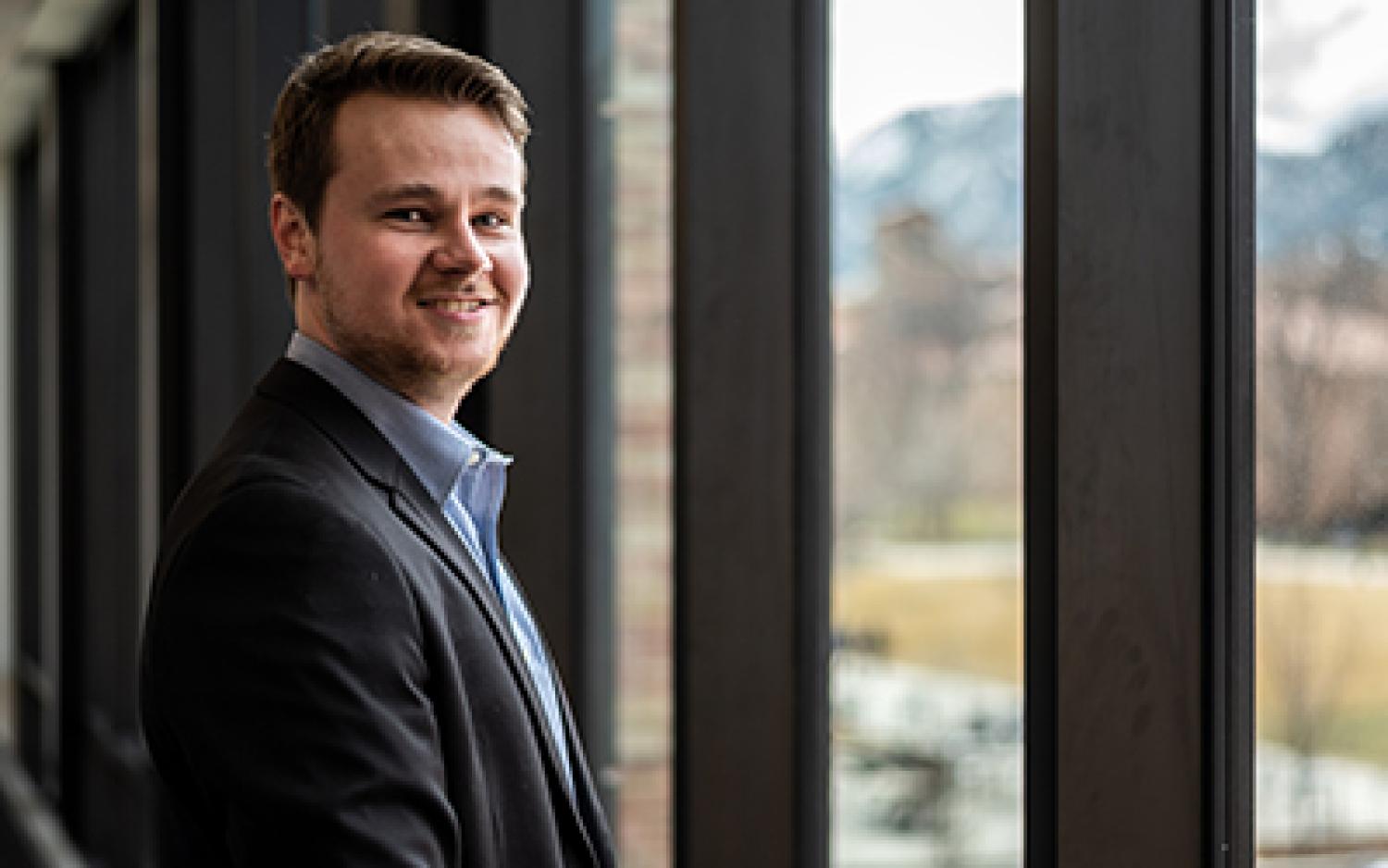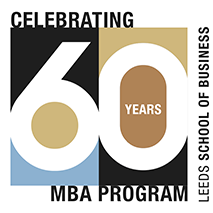Colton Marschik (BA, OpsMgmt’23)

Data Analyst, Lockheed Martin
Before the skybridge connecting the Leeds and engineering buildings at CU Boulder was completed, Colton Marschik was, as he put it, “walking the metaphorical bridge between them.”
Colton enrolled as a computer science student, but is the kind of person who sees connections between unrelated things very well, which made him a natural fit to transfer to Leeds early on.
“I was the math tutor type growing up, I really like analytics—but I also always want to be involved,” he said. “I like leadership, business, anything that gives me the opportunity to change the world. And while I really liked studying computer science, I was concerned it might not help me get into leadership the same way a Leeds degree would.”
The combination of data analytics and operations management he’s been able to study at Leeds has been right up Colton’s alley. Not only did it give him the technical skills to land a coveted internship in Lockheed Martin Space, it gave him the communication skills and poise to make the case for full-time work elsewhere in the company.
“As an intern, I thought I’d be making people coffee. Instead, I had the chance to make actionable change.”
Colton Marschik (BA, OpsMgmt’23)
In fact, one of his favorite courses was Communication Strategy.
“The skills I got in that course got me the job—I sent a cold email asking for a Skype call” with the company’s Rotary and Mission Systems office. “My interviews weren’t really about my technical skills—when I’m working there, I’ll need to be able to pull numbers, sit down with a vice president and tell the story of what the data mean. If you can’t tell that story, they don’t care how smart you are.”
Solving an especially thorny problem
Colton has found an unusual outlet to practice the skills he learned in that course—a podcast, “The Future of Thought,” in which he interviews experts and probes the widening gaps dividing people, in politics, business and elsewhere.
“In my mind, the answer to the problem is open conversation,” he said. “Ultimately, the goal was to understand people from all perspectives in the hope of bridging that gap.”
It meant learning to ask some tough questions, as well, especially when guests with an agenda tried to use the show to advance their platform. That was less of an issue with some of the faculty he invited; a favorite guest was Phil Fernbach, who discussed his research into what the professor calls “the knowledge illusion.”
Having the podcast to focus on helped Colton narrow his on-campus involvement somewhat; he admitted to being “probably a little too involved” in his first year. He was heavily involved in campus student government and also was part of the community council for two residence halls.
“Those were great opportunities to really feel at home on the campus and get the chance to meet a lot of really smart people from diverse background,” he said.
Sorting out career direction
Colton also said he’s benefited from the mentorship programs at Leeds, especially as he sorts out what direction his Lockheed career might go in. And he’s been a regular feature in case competitions at Leeds, which have challenged him to put lessons in business ethics and even law into practice.
He’s confident his mix of skills and perspectives will serve him well as he heads off to industry and the start of his career. If his internship is any indication, he should be quite successful. In Lockheed’s space division, he helped lead a project that cleared inefficiencies in the company’s shipping system, leading to drastically reduced approval times.
“I was really proud of that because when I came in as an intern, I thought I’d be making people coffee,” he said. “Instead, I had the chance to make actionable change for the company.”







